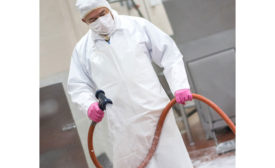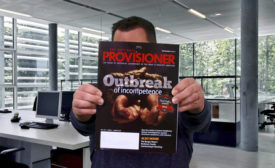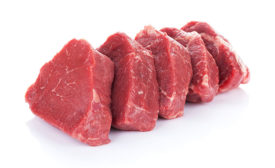Food Safety
Food Safety
Foreign-object contamination in meat and poultry
Foreign affairs: Processors must leverage appropriate technologies, inspections and training programs to minimize product contamination from foreign objects.
Read More
Show Preview | Food Safety Summit
Certification courses offered at the Food Safety Summit
April 17, 2019
Food Safety
Keeping sanitation workers safe in meat and poultry plants
Sanitation need not be dicey: Safety education and close monitoring can lessen the perils crews face while sanitizing meat and poultry plants.
Read More
Consultants Corner
Add PC to your FS&Q
Use your FS&Q team and its data to bolster your process control initiatives.
Read More
Processing Tech
Slicing, dicing and cutting machines get smart
New automated slicing, dicing and cutting machines can cut labor costs because they are fast, accurate and easy to clean.
Read More
Stay ahead of the curve. Unlock a dose of cutting-edge insights.
Receive our premium content directly to your inbox.
SIGN-UP TODAYCopyright ©2025. All Rights Reserved BNP Media.
Design, CMS, Hosting & Web Development :: ePublishing










